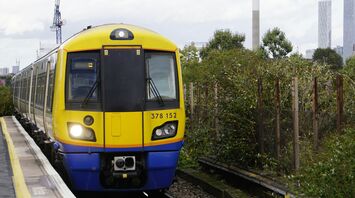London Overground Cuts Spark Concern for Travelers

The recent cuts to staff and ticket office services on the London Overground have sparked alarm among rail users, particularly those who require extra support while traveling. The Rail, Maritime and Transport (RMT) union has called on London Mayor Sadiq Khan to intervene, urging him to address the reductions that have left many stations under-resourced and passengers without key services, including the ability to access Oyster card support at ticket offices.
Arriva Rail London, responsible for running the Overground, has faced criticism for reducing ticket office hours despite significant opposition from passengers and staff. According to RMT, 70% of stations are currently understaffed, which poses a challenge to travelers who rely on in-person assistance for navigating the system, purchasing tickets, or seeking help. These changes particularly impact the elderly, disabled individuals, and travelers unfamiliar with the Overground system.
For travelers, these developments are likely to result in delays and additional frustration, especially for those visiting London or using the Overground to travel to new destinations. With fewer staff available, passengers may struggle to get the help they need with tickets, Oyster cards, or general information about the network, leading to potential confusion. This could also mean longer waits at ticket machines, especially during peak times, when staff shortages are most noticeable.
Moreover, the reduced presence of staff may have safety implications, which could be a concern for those traveling late at night or through less busy stations. Without the reassurance of staff members on hand, passengers may feel more vulnerable, making the travel experience less comfortable for tourists and regular commuters alike. This might lead some to seek alternative forms of transport, adding to travel expenses or causing additional stress.
In light of these changes, travelers should be aware of potential delays or disruptions when using the London Overground. Planning ahead, including downloading travel apps for real-time updates and considering alternative transport options, could help mitigate some of these challenges. For visitors unfamiliar with the network, ensuring access to digital payment methods like contactless cards or mobile payment apps will be vital, as staff availability will be limited.
Ultimately, these cuts represent a broader trend in public transport where cost-saving measures impact service quality. For travelers, this news means adjusting expectations and being prepared for fewer services at stations. It highlights the importance of being self-sufficient when navigating the system and staying informed about possible changes that might affect their journey.



















